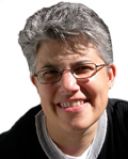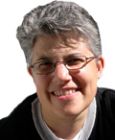Anxiety
The Sum of My Parts, A Memoir
I never knew what she prayed for but there was so much to ask for
Posted August 15, 2011
My upcoming memoir, The Sum of My Parts: A Survivor's Story of Dissociative Identity Disorder, emphasizes the healing process and the nature of resilience. These installments from Chapter One contain some descriptions of violence only for the purposes of illustrating why and how dissociative identity disorder is formed. Please take care in reading these installments.
The Sum of My Parts
Chapter 1: Installment 1 of 7
My mom hung up the phone on the wall in the kitchen and started walking up to my room. It was a warm, humid evening and there was no air-conditioning in our house, which was actually half of a duplex. She left the fan cooling her in the kitchen and heard the fan cooling my father in the living room as she walked down the long hallway.
In the hall she instinctively stopped at a table holding a statue of Mary, across from which hung a wooden cross. She distractedly mumbled a little prayer as she made the sign of the cross: "Dios me bendiga." God bless me. I never knew what she was praying for, but there was so much to ask for.
In the small foyer, a coffee table displayed old issues of National Geographic. My mom thought the pictures were so beautiful that she never threw them away, so the piles got bigger and bigger. She wanted to travel the world and often looked at the pictures wistfully. My parents moved to the United States the year before I was born, and my mom would spend the rest of her l

Walking through my brothers' room, my mom pulled aside the curtain that served as my door. She sat down next to me on my small bed. My room barely contained its belongings: a twin bed with a brown wooden headboard, a dresser, and some built-in shelves. It wasn't part of the original house, but a small add-on built by previous owners. When we moved in, my mom proudly told me that this would be my room; I wouldn't have to share with my brothers. At first I was glad to have the room to myself. But in the small addition I was at the very end of the house, far from my parents' room. I had no real door and no heat, and one wall was made of brick, with a scary window that looked into my room from the bathroom.
I could have had a different room in the house--one all the way down the hall, next to my parents' bedroom. Its door locked, and it had heat and a window to the outside. It had always been part of the house, yet it went unused. I often wondered, Why isn't that my room? It seems obvious to me now. If I had been in that room, I could have locked the door. My mom would have heard what my father was doing to me, or I could have screamed out the window to passersby. Instead, I slept in the back of the house, isolated and exposed in a room without a door, and with a window that allowed someone standing in the bathroom to watch me.
My mom didn't come into my room very often, but this evening she had some special news. She spoke to me in Spanish, the only language I knew at that age. "Olguita, I found a job and I won't be home to care for you during the week." A surge of fear and panic rushed through my body because I knew my father had forbidden her from working. I was afraid for her, and I was afraid for me. I asked my mom why she had to go. "Because your father doesn't speak English and there aren't jobs he can do in Spanish."
Later I heard him yelling at her. He said that since she was a woman, her role was in the house taking care of us kids, not out there speaking English and working. My mom pleaded with him. "We need the money, Alejandro. We are behind in the rent and we can't afford groceries. You want our children to go to Catholic school, and that costs a lot." He stormed out of the room, and the next week she started her job.
Back then, in the 1960s, if you didn't speak English and refused to consider jobs in the service industry, like a janitor or dishwasher, you didn't find work. So my father rarely worked. He told people he had a Ph.D. He really didn't, but I didn't know that then. He introduced himself to people with the title "Doctor," and when people asked if he was a medical doctor, he'd say he was a doctor of interna-tional relations.
My father was a habitual liar, even about unimportant things: who he talked to, what he did that day, and even what we ate for lunch. I saw him twist facts easily, often in ways that confused me. We always celebrated his birthday on March 28, and it wasn't until his death that I learned he was actually born on June 12. At various times he disappeared for weeks or months at a time, saying he was going to work somewhere overseas, but then he came home with no money.
My father, or Popi as my brothers and I called him, was fifty-one when I was born. I don't know much about the truth of his life before then, despite the many stories I heard. He said that he had been a journalist for an El Salvadoran newspaper and met my mom when he was on assignment in the Dominican Republic. He was on assignment in Argentina when Alex was born and was working in Puerto Rico when Mike was born. He later covered the Castro revolution in Cuba, and he told me the only reason he came to the United States was that when Castro took over they had to leave in a hurry, which was also why we didn't have many belongings--they were given only forty-eight hours to leave the country. He said that he had worked as an aide in the Kennedy and Roosevelt administrations as an expert on Latin America. For years I told people my father was a journalist. I never discovered any evidence of him being a journalist or working as a political aide, but at the time I believed my father was very important.
My father was mostly bald, with short gray hair on the sides of his head and a few hairs on the very top of his head that he brushed back. He had a little gray mustache that he was always clipping and trimming. He had age spots on his hands and arms and wrinkles on his face, but his hands were always washed and his nails trimmed impeccably. They looked perfect at the end of his short, strong fingers. I learned to watch my father's every expression, check how his small mouth and mustache set on his face, listen for changes in his voice and speech, and, in this way, try to spot danger signals.
It was odd to see my mother and father together. Mame, as I adoringly called my mom, or Blanca, as my father called her, was tall and young and beautiful. In contrast, Popi was short and seemed old--too old for her, really. After all, he was twenty-four years her senior. I later learned from my mother that they met and married in the Dominican Republic, where her family was from. But when she became pregnant with Alex, my father left her and went to Argentina. He didn't tell her anything; he just left. My mom tracked him down in Argentina so they could live together as a family. My brother Alex was born early, not long after my mother fell down the stairs of their home. In her story of Alex's birth she never said my father had pushed her, but I always believed he did. I never saw my mom fall unless my father pushed or punched her.
I was very close to my mom and thought she was the smartest woman ever. She told me that she started school at the age of four, graduated from Catholic high school when she was sixteen, and then became the only person in her family to go to college. Her degree and her bilingual Spanish and English shorthand and dictation skills allowed her to find good jobs as a secretary. That day when I was nearly four years old, she explained to me with a smile, "I'll be working in a hospital downtown." Even though I was terrified, I was very proud of Mame. She was smart and she was going to take care of us.
Look for installment 2 next week.
Find out more about the memoir or Olga's work.




